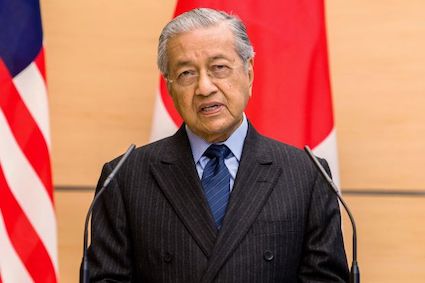Samurai bonds not the only way to raise funds, economist tells govt

(FMT) – An economist has urged Putrajaya to explore other options for raising funds following reports that the government is considering a second offer of Samurai bonds from Japan.
Speaking to FMT, Yeah Kim Leng said such options include monetising assets and selling off stakes in government-linked companies (GLCs) operating in areas where there are sufficient private sector investors.
He was commenting on Prime Minister Dr Mahathir Mohamad’s remarks yesterday that the government is studying another offer for Samurai bond as Japan is making a “very cheap” loan available.
Yeah said while interest rates are inching to “near zero” in some advanced countries, bonds must be cost-effective after the inclusion of hedging costs.
While local bonds may be a more prudent option, he added, monetising assets or selling off stakes in GLCs is more ideal.
“In short, avoid debt, and if (that is) not feasible, borrow in our own currency unless there are strategic reasons to take foreign currency loans,” the Sunway University Business School economics professor said.
He said assets like airports and ports could be sold in the form of real estate investment trusts.
“Government holdings of GLC shares across various sectors such as finance, industrials, healthcare and education can be offloaded to increase private sector participation,” he added.
Abu Sofian Yaacob, an economics lecturer at the Putra School of Business in Universiti Putra Malaysia, agreed that local bonds are a better option than Samurai bonds as they involve almost no risk and cost nearly the same, if hedging is taken into account.
Putrajaya previously said it might consider issuing another Samurai bond if it could get rates similar to the 0.63% in the earlier issuance of 200 billion yen, although this was without a currency swap, a form of hedging.
Finance Minister Lim Guan Eng said the cost of the bond after a currency swap would be close to 4%, similar to that of Malaysian Government Securities.
He told FMT that alternatively, the government could look into plugging any existing tax gaps, review its budget and carry out more collaborations with the private sector to ease the pressure on its finances.
“But eventually, the government will still have to borrow money either locally or abroad.”
Abu said there were concerns which the government should address before opting for another Samurai bond, including why Japan is offering Malaysia loans at such low rates.
“Is there a quid pro quo, where in return Japan will be able to acquire strategic Malaysian assets such as Khazanah Nasional’s stake in IHH Healthcare?”
He also urged the government to explain how it spent the RM58 billion in loans it took during the first half of the year as well as the need for any further loans.
“The public is aware that the country’s debts have increased tremendously since the new government took over.”
Economist Barjoyai Bardai recently urged Putrajaya to slow down on spending, citing figures from Bank Negara Malaysia showing that the government had already borrowed RM58.1 billion in the first six months of the year.
The Universiti Tun Abdul Razak lecturer said the numbers showed that federal government debt had increased from RM686.8 billion at the end of 2017 to RM799.1 billion currently.

